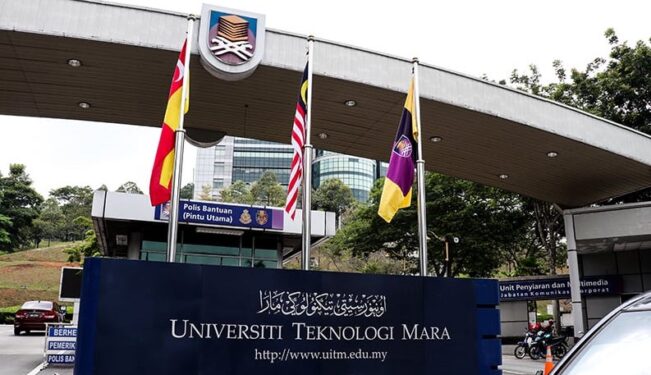Editor’s Note: This is the content of an open letter by the Federation of Private Medical Practitioners’ Associations Malaysia (FPMPAM) to Prime Minister Datuk Seri Anwar Ibrahim.
The letter was written on behalf of the:
- Academy of Medicine of Malaysia (AMM)
- Academy of Family Physicians of Malaysia (AFPM)
- Association of Specialists in Private Medical Practice (ASPMP)
- Pertubuhan Doktor-Doktor Islam Malaysia (PERDIM)
- Medical Practitioners Coalition Association of Malaysia (MPCAM)
- Penang Medical Practitioners’ Society
- Perak Medical Practitioners’ Society
- Private Medical Practitioners’ Association of Selangor & Kuala Lumpur
- Private Medical Practitioners’ Society, Kedah/Perlis
- Association of Private Practitioners’ Sabah
- Private Practitioners’ Society Sarawak
- Malaysian Medical Association (Sarawak Branch)
THIRD-PARTY administrators (TPAs) and insurance-owned employees’ benefits companies are middlemen in the business of healthcare for employees in the private sector through administering the procurement of medical care and employing cost-containment measures.
Under the Private Healthcare Facilities and Services (PHFSA) Act 1998, these entities are defined collectively as managed care organisations (MCOs).
In our opinion, the current MCOs’ business practice model is likely to result in serious breaches of relevant laws, including the Medical Act, PHFSA 1998 and Regulations 2006, the MMC Code of Professional Conduct, the Guidelines on Good Medical Practice and others, thereby undermining the quality of medical care for the patient and the rakyat.
We hereby humbly present the concerns, findings and the recommendations of the Private Practitioners’ Forum on the MCOs held on Sept 16:
- Some of the specific issues resulting from the imposition of terms and conditions (Quasi-Regulations or QR) by the MCOs are contrary to compliance with existing laws and regulations.
These QRs were unilaterally determined by the MCOs without due consultation with the Health Ministry (MOH), private doctors and medical professional bodies, resulting in unfair contracts that are contrary to optimal treatment for patients and fair reimbursement for the registered medical practitioner (RMPs).

- QRs restrict patients’ right of choice of doctors, limited to those registered with the MCOs. The existing patient-doctor relationship is also compromised as the MCOs determine the clinics they appoint. With a change of the MCOs, patients are forced to start over with a new healthcare provider.
- The MCOs have imposed QRs on doctors’ right of choice of medicines and duration of treatment per visit leading to difficulty in providing optimum evidence-based healthcare to the patients.
- Of late, some MCOs have issued QRs requiring that their patients should only consult the doctors and are then directed to collect their medications from specific pharmacies. They are then asked to repeat their medications without the need for subsequent follow-up care and supervision by the primary doctors.
This specific QR is tantamount to dispensing separation and is contrary to the process of continuity of care for the patient. It will jeopardise patient safety.

- There is also a QR that specifies what medical conditions that doctors are allowed to treat and to be reimbursed for. This is an interference with the medical management of a patient and thus is a contravention of specific provisions of the PHFSA 1998 and Regulations 2006.
- Furthermore, there are also QRs that reject payment for specific medications even though they are NPRA-registered medications and prescribed by the attending doctor for medical treatment.
Conclusion
The continuation of this scenario of unregulated MCOs is untenable for the doctors committed to providing affordable, quality and compassionate care.
The current MCO provisions in the PHFSA 1998 regulate only the professional relationships of healthcare facilities with the MCOs. It does not regulate the MCOs.
The current provisions in the PHFSA 1998 were an interim measure to safeguard the quality of care to patients while an MCO Act was being drafted. The legislation process has been stalled after a preliminary draft was produced in 1999.
After almost 25 years, the provisions have not been effective in restraining the MCOs from laying down terms and conditions on healthcare facilities that affect the professionalism of doctors and the provision of quality care to patients.
We strongly urge the PM to immediately:
a) Expedite the enactment of the long overdue MCO Act and ensuing regulations to regulate the practice of manage care and the code of conduct of MCOs in the interest of good medical practice.
This is in line with practices in many developed countries that have managed care legislation to protect patients and doctors from unscrupulous business practice. Legislation should include provisions to make the MCOs liable as a result of imposing undue constraints on doctors resulting in adverse outcomes for patients.
b) Direct the relevant Ministry(ies) to immediately vet all MCO contracts to ensure consistency, fairness to all concerned and compliance with mandatory standards which the MCOs are obliged to meet as required by law.
c) Empower the relevant Minister/ Bank Negara Malaysia (BNM) to protect the MCOs’/insurer-MCOs enrollees’/patients’ right to appropriate quality and choice of care.
d)Establish statutory responsibilities of the MCOs towards the patients, enrollees and registered medical practitioner who are the contracted providers. – Sept 18, 2023
Dr Steven KW Chow who is chairman of the Private Practitioners’ Forum 2023/FPMPAM co-authored this open letter with Dr Shanmuganathan TV Ganesan who is the FPMPAM president.
The views expressed are solely of the author and do not necessarily reflect those of Focus Malaysia.










